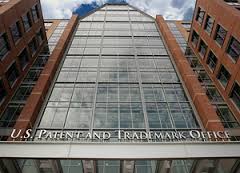On August 5, 2016, the USPTO Director issued a Final Order reversing an administrative law judge’s initial decision, which had suspended a practitioner for 18 months. The Final Order held the OED Director violated USPTO precedent and mandatory rules regarding reciprocal discipline—37 C.F.R. § 11.24. The Final Order is significant because it not only confirms the mandatory nature of reciprocal discipline, but it also appears to be the first time the USPTO Director has ever reversed a decision of an ALJ and ruled in favor of a practitioner in an attorney disciplinary case.
Background
This matter arose in 2013, after the practitioner had been suspended by a state bar. The practitioner, as required by 37 C.F.R. § 11.24(a), reported the state bar suspension to the OED Director. According to Section 11.24(a), “upon receiving notification” of the suspension, the OED Director was required to file with the USPTO Director a complaint seeking the identical discipline imposed by the practitioner’s state bar, via a mandatory disciplinary process known as “reciprocal discipline.” We have previously discussed the process for reciprocal discipline at the USPTO in our article published in IPWatchdog.
Notwithstanding the mandatory language in Title 37, Section 11.24, the OED Director refused to follow Section 11.24. Instead, the OED asserted Section 11.24 was discretionary, and the OED thus “chose” not to follow it. Instead, the OED Director sought and obtained approval from the USPTO’s Committee on Discipline and filed with an administrative law judge a de novo disciplinary complaint seeking the practitioner’s exclusion from the USPTO or an indefinite suspension–a far cry from the discipline imposed by the practitioner’s state bar. Funk & Bolton represented the practitioner in the USPTO disciplinary proceeding.
As we previously reported here, the OED Director has taken the position that the OED has “discretion” to decide whether to follow the USPTO’s reciprocal disciplinary rule. Several such alleged “discretion” cases were resolved by the practitioner entering into a settlement agreement with the OED, apparently not realizing (or unwilling to litigate) the issue of whether the OED’s conduct was proper in light of the mandatory language in 37 C.F.R. § 11.24. See In re Juliet M. Oberding, Proceeding No. D2016-06 (USPTO Dir. Feb. 12, 2016) (practitioner suspended by California for 30 days agrees to 60-day USPTO suspension; applicability of Section 11.24 not raised); In re Peter J. Manghera, Proceeding No. D2009-43 (USPTO Dir. June 10, 2010) (practitioner reprimanded by Wisconsin agrees to two-year USPTO suspension; applicability of Section 11.24 not raised).
There are three notable problems with these prior cases. First, as a matter of law, settlement agreements are not “authority” and are thus not binding on third parties. Second, because no one ever raised the Section 11.24 issue, the USPTO Director accepted the settlements and failed to assess whether the settlements conformed with the USPTO’s Rules of Disciplinary Procedure, in particular 37 C.F.R. § 11.24. Third, in each case where the OED Director failed to follow the plain language of 37 C.F.R. § 11.24, the result was less favorable to the practitioner than the disciplinary sanction imposed by the practitioner’s state bar.
Proceeding Before The ALJ
In the present case, the issue of Section 11.24’s binding nature was expressly raised from the start and extensively litigated throughout. Indeed, prior to trial, the practitioner sought dismissal of the OED Director’s disciplinary complaint based on the failure to follow 37 C.F.R. § 11.24. The ALJ denied the practitioner’s motion and held Section 11.24 was not mandatory and could be “sidestepped” by the OED Director.
A two-day disciplinary trial ensued. Post-trial motions were filed in which the practitioner again sought dismissal for violation of Section 11.24. Those motions were denied. After full litigation on the merits, the ALJ entered an initial decision in favor of the OED Director and against the practitioner. The ALJ recommended that the practitioner be suspended from practice before the USPTO for 18 months (a 50% greater punishment than what the practitioner would have faced had the OED Director followed 37 C.F.R. § 11.24).
 USPTO Director’s Final Order Reversing ALJ
USPTO Director’s Final Order Reversing ALJ
The practitioner appealed the initial decision to the USPTO Director. The basis for the appeal included, among other issues, the OED Director’s failure to follow the mandatory procedure set forth in 37 C.F.R. § 11.24, the absence of hearing officer subject matter jurisdiction, and the USPTO’s violation of the practitioner’s rights to due process and equal protection.
The OED Director argued in relevant part that Section 11.24 is not mandatory and the OED has discretion to ignore it.
The USPTO Director rejected the OED Director’s position and held that Title 37, Section 11.24 “unambiguously required the OED Director to follow the mandatory reciprocal disciplinary procedures” after the OED Director learned about the practitioner’s state bar discipline.
The USPTO Director explained: “Section 11.24 does not allow the OED Director the discretion to commence a de novo proceeding” and “the OED Director was required to follow the reciprocal discipline procedures.” The USPTO Director further found that while the USPTO has broad statutory authority to regulate the conduct of patent practitioners,
that broad authority is not without limits. Here, the text of Section 11.24 is plainly mandatory where the OED Director is informed of discipline in another jurisdiction, and USPTO’s broad authority does not extend to acting inconsistent with the plain language of its regulations.
The USPTO Director further found that “the USPTO must follow its own regulations and its own unambiguous commands”–including those set forth in Section 11.24. In so ruling, the USPTO Director followed the “Accardi Doctrine,” an administrative law concept that stands for the proposition that federal agencies are required to follow their own rules. See United States ex rel. Accardi v. Shaughnessy, 347 U.S. 260 (1954).
The USPTO Director further found that the OED Director’s position was contradicted by prior USPTO Director precedent, which interpreted Section 11.24 as mandatory, not discretionary.
Finally, the USPTO Director held that,
to deviate from the plain language of Section 11.24 here would frustrate the notice and predictability purposes of the USPTO’s regulation.
The USPTO Director thus made clear that the OED Director must abide by the USPTO’s mandatory rules of disciplinary procedure. Presumably, the USPTO’s decision will put an end to the OED’s practice of sidestepping the mandatory reciprocal disciplinary rules, which should lead to greater certainty for practitioners who need to know how the result of a disciplinary case before a state bar will affect their right to practice before the Office.
